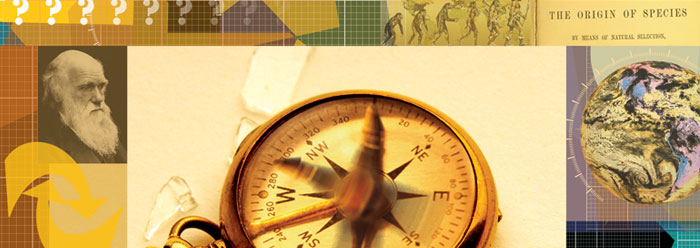Search Tools
New Defender's Study Bible Notes
3:22 tree of life. The delicious fruit of the tree of life had been freely available to Adam and Eve, but it was not necessary for their survival. It was only eating the fruit of the tree of knowledge of good and evil that would result in death (Genesis 2:17). The same will apply when the tree of life is planted again in the new earth. Its fruit and leaves will be freely available for food (Revelation 22:2), but it will not be necessary for survival, since there will be no more death there (Revelation 21:4). However, it did contain such wonderful health-giving ingredients that it would have enabled people to survive to tremendous ages even after sin and death entered the world, and this would have undermined God’s intended purpose for death (see note on Genesis 3:17). The words “for ever” in this verse are from the Hebrew olam, which can also legitimately be translated a “long time,” depending on context (e.g., Isaiah 42:14). It is also used for the “lasting hills” (Deuteronomy 33:15).
14:5 Rephaims. Some of these Canaanite tribes seem actually to have been demon-possessed, in the same manner as the demon-energized population before the Flood (see notes on Genesis 6:1-4). The Rephaim (“strong ones”) and the Zamzummim (“powerful ones,” probably the same as the Zuzim) along with the Emim, all seem to have been of “the sons of Anak” or the Anakim, and all seem to have been giants (note Deuteronomy 2:10,20; Joshua 15:13). In Numbers 13:33, these Anakim are actually said to have been “giants” (Hebrew nephilim, the same word as used in Genesis 6:4). Furthermore, the term rephaim is also used to refer to some of the spirits of the wicked dead in Hades (Job 26:5; Proverbs 2:18; 9:18; 21:16; Isaiah 14:9; 26:14). All of this suggests another irruption of demonic spirits after the Flood, possibly at the rebellion at Babel, with giant progeny again being produced through demon-possessed parents. Their descendants inhabited Canaan.
25:31 birthright. The birthright customarily involved a double portion of the inheritance (Deuteronomy 21:17), but this privilege also involved the spiritual leadership of the family. Esau desired the first but not the second. In any case, the father was responsible to transfer the birthright to a more deserving son if necessary (I Chronicles 5:1,2), and Isaac should have long since made it clear that it was to go to Jacob. The latter, appalled at the thought of a carnal profligate like Esau having the spiritual responsibilities of the birthright, offered to purchase it from him, perhaps initially in jest. However, Esau agreed to the absurd bargain, thus making it still clearer that he was unqualified.
36:31 the land of Edom. The rest of Genesis 36 seems to have been inserted by Moses, at the time of the exodus, since he knew the Israelites would be encountering the Edomites when they left the wilderness. Moses knew that the Israelites would eventually have a king (Deuteronomy 17:14-20), even though they still did not have one in his day.
38:8 raise up seed to thy brother. This so-called Levirate marriage relationship (Deuteronomy 25:5-10) was practiced also in other nations at the time, according to the Nuzi tablets.
15:26 none of these diseases. The Israelites were familiar with “the evil diseases of Egypt” (Deuteronomy 7:15), but obedience to God’s laws, which included numerous laws of sanitation not understood until modern times, would keep them in good health.
21:24 Eye for eye. This is the first reference to the famous “law of retaliation,” or lex talionis. See also Leviticus 24:20; Deuteronomy 19:21, along with Christ’s modification of this law in Matthew 5:38-39.
22:25 usury. The lending of money to fellow Israelites at interest was prohibited, not only to the poor but to anyone (Deuteronomy 23:20).
24:10 saw. How these men could “see God” and yet live (contrast Exodus 33:20), is perhaps resolved by the reference to this event in Deuteronomy 4:12: “And the LORD spake unto you out of the midst of the fire: ye heard the voice of the words, but saw no similitude: only ye heard a voice.” No man has seen God in His triune essence at any time (John 1:18). Thus no man can–or should ever attempt–to make an image of the Godhead. This supper in the presence of God, as the great covenant of the law had been accepted by the people and sealed with a blood sacrifice on the twelve-pillared altar, is a type of the coming “marriage supper of the Lamb” (Revelation 19:6-9).
28:3 spirit of wisdom. Joshua, like these craftsmen making the beautiful garments of the high priest, was “full of the spirit of wisdom” (Deuteronomy 34:9). Two very different types of occupation are detailed, yet both were carried out “heartily, as unto the Lord” (Colossians 3:23) in the wisdom of the Spirit of God.














